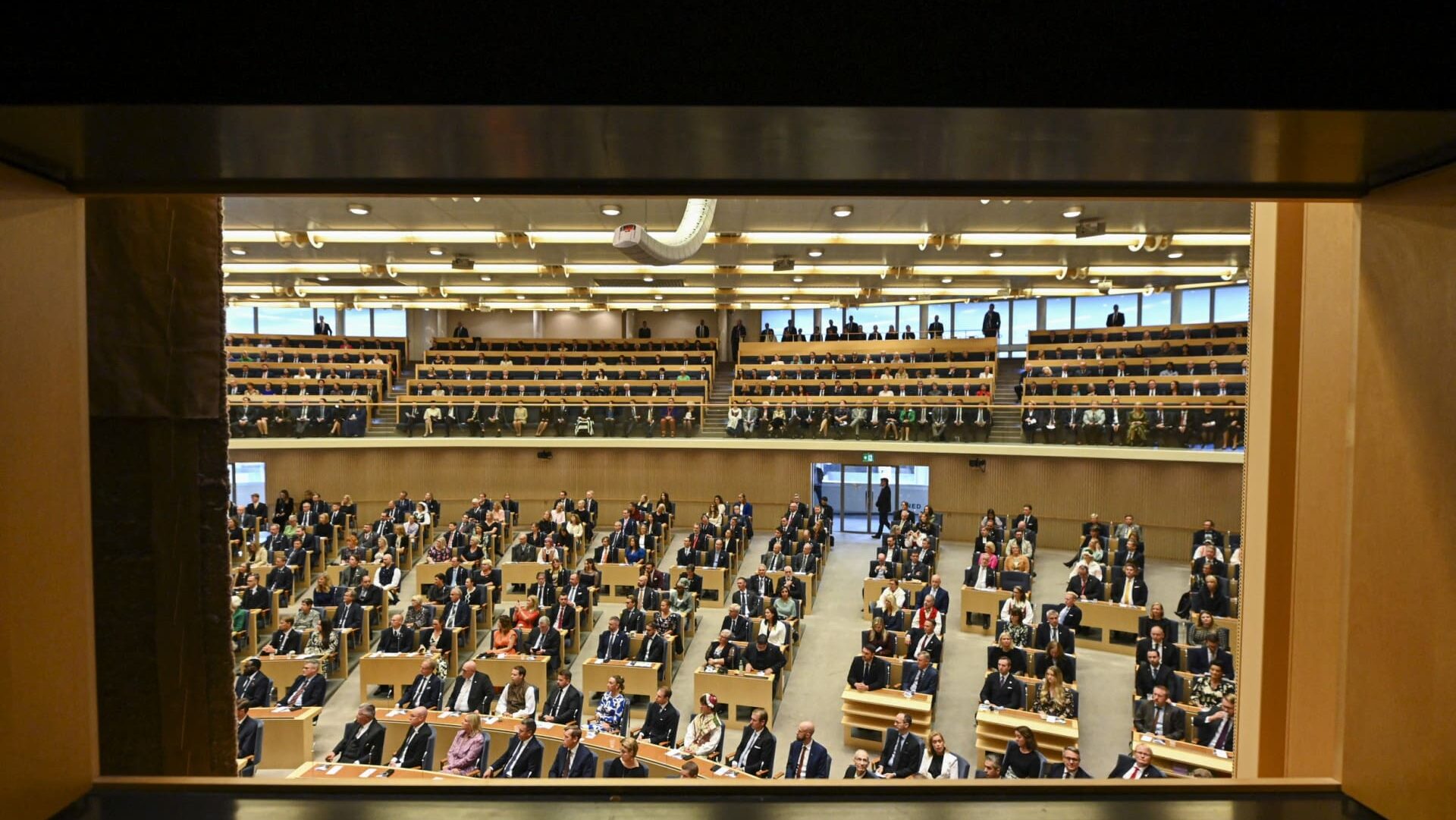
Participants are seen through a window as they attend the opening of the Swedish Parliament Riksdagen on September 27th, 2022 in Stockholm, as the parliament meets for the first plenary session after the general elections.
Photo: JONATHAN NACKSTRAND / AFP
Sweden on Tuesday adopted a Defense Cooperation Agreement (DCA) with the United States, backed by an overwhelming majority within the Swedish Parliament, Swedish media report.
After almost six hours of debate, the deal—first announced last December—passed in the Riksdag with 266 MPs voting in favor, 37 against, while 46 were absent.
The Swedish government believes the agreement will deter Russia and, in the event of a conflict, shorten the distance between American soldiers, equipment, and supplies and whatever war zone they need to be deployed in.
What is the DCA?
Under the Defense Cooperation Agreement, U.S. military personnel can be stationed in Sweden for extended periods of time. While there, they can conduct training exercises and store weapons, ammunition, vehicles and other military equipment in the country—in the case of equipment, on the proviso that the Swedish government approves its first.
Aside from Sweden’s own recently acquired NATO obligations, the U.S. is required to invest money in buildings or infrastructure at one or more of the 17 military bases and training areas across the country.
The U.S. already has similar agreements with several countries in Scandinavia and the Baltic nations, including Norway, Finland, Estonia, Latvian and Lithuania. Denmark is currently still in the negotiation phase.
“There is a common interest in getting this agreement in place as quickly as possible,” said Swedish Minister of Defense Pål Jonson.
Jonson expects Sweden to implement the agreement within a month and then send a note to the U.S. “We have said that a memorandum can be exchanged around August and then work could move forward,” he said.
Opposition Greens and Left parties, while agreeing with most of the treaty, have decried the absence of an explicit ban on nuclear weapons on Swedish soil.
Before its entrance into the NATO military alliance earlier this year, Sweden was known for its firm commitment to a world without nuclear weapons.
“Sweden is the only country in the Nordic region that lacks clauses in the agreement that provide protection against [the placement of] nuclear weapons,” argued Left Party (Vänsterpartiet) MP Håkan Svenneling during Tuesday’s debate.
However, Prime Minister Ulf Kristersson last month declared that in wartime, the country could host nuclear weapons.
“If there is a war with us on our land, which Sweden is drawn into after an attack by others, then it is a completely different situation. Then the whole of NATO benefits from the nuclear umbrella that must exist in democracies as long as countries like Russia have nuclear weapons,” Kristersson told P1 state radio.
Defense minister Jonson countered the opposition’s criticism by stating that the agreement does not nullify Swedish sovereignty.
“It is very clear that Sweden is a sovereign country, there is no other country that can force Sweden to have nuclear weapons on Swedish territory,” he said.
The second-largest party in the Riksdag, the rightist-nationalist Sverigedemokraterna (Sweden Democrats) supports the treaty.
“The DCA is not about nuclear weapons,” Aron Emilsson, SD spokesperson on foreign affairs pointed out, asserting that “the presence of nuclear weapons on Swedish soil in peacetime is not an issue.”
He also emphasized that it is very important “not to lock ourselves into the notion that we would never, in various possible scenarios, find ourselves needing alternative courses of action in a wartime situation,” he told Dagens Nyheter.
Opposition parties Centerpartiet (Center Party) and Socialdemokraterna (the Social Democrats) proved equally supportive. Peter Hultqvist, spokesperson on defense policy for the social democrats, emphasized that democratic countries must stick together.
At the same time, he dismissed criticism of the transfer of nuclear weapons being unregulated through the agreement.
The Non-Proliferation Treaty—the landmark international treaty whose objective is to prevent the spread of nuclear weapons and weapons technology signed by both countries, among others—still applies, he said.
In 1966, the Swedish stopped planning for the production of nuclear weapons. Following its signing of the Non-Proliferation Treaty in 1968, parliament voted to end the program altogether.
Should Sweden allow U.S. nuclear weapons, it would automatically become—in the eyes of the Kremlin—a legitimate target.
